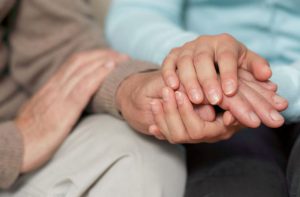Caregiver Support
Informal caregiving is a major public health issue with a growing impact on the health-related quality of life of millions of Americans. Many informal caregivers are family members. They fill the major gaps fueled by an aging population, advancing technology that extends life expectancy, shorter hospital stays that discharge patients earlier and healthcare work force shortages.
How Caregivers Help
Many informal caregivers provide assistance – usually unpaid – to family members, neighbors or friends whose chronic physical or mental impairments interfere with activities of daily living. Caregivers may live with or near their loved one, or may provide caregiving from a distance.
Activities of daily living are personal care we normally do, such as feeding ourselves, bathing, dressing, grooming, working, homemaking and participating in leisure and social activities.
Caregivers help with personal care, as well as everyday activities such as cleaning, laundry, mowing the lawn, paying bills and money management, grocery shopping and cooking meals. They assist with coordination of medical care and appointments, transportation, securing prescriptions, but also engage in more complex health-related tasks, such as medication management and wound care.
Take Care of Yourself
Despite its benefits and rewards, such as satisfaction in helping others, caregiving can also bring emotional, health and financial challenges. Too often, informal caregivers do not have enough time for themselves, as they are balancing work and family responsibilities.
Emotional stress, whether the cause is “good” or “bad,” can worsen the caregiver’s underlying medical conditions, as well as contribute to new physical and mental health problems.
Respite care provides the much needed temporary break from the exhausting challenges faced by the family caregiver caring for loved ones who might otherwise require permanent placement in a facility outside the home.
Additional Resources

